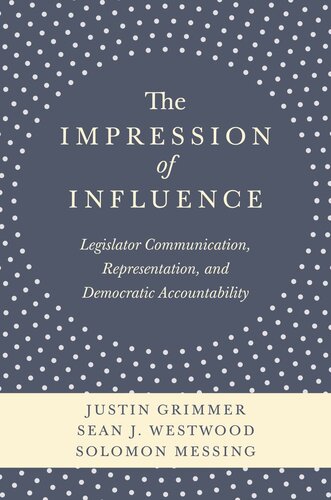

Most ebook files are in PDF format, so you can easily read them using various software such as Foxit Reader or directly on the Google Chrome browser.
Some ebook files are released by publishers in other formats such as .awz, .mobi, .epub, .fb2, etc. You may need to install specific software to read these formats on mobile/PC, such as Calibre.
Please read the tutorial at this link: https://ebookbell.com/faq
We offer FREE conversion to the popular formats you request; however, this may take some time. Therefore, right after payment, please email us, and we will try to provide the service as quickly as possible.
For some exceptional file formats or broken links (if any), please refrain from opening any disputes. Instead, email us first, and we will try to assist within a maximum of 6 hours.
EbookBell Team

0.0
0 reviewsConstituents often fail to hold their representatives accountable for federal spending decisions—even though those very choices have a pervasive influence on American life. Why does this happen? Breaking new ground in the study of representation, The Impression of Influence demonstrates how legislators skillfully inform constituents with strategic communication and how this facilitates or undermines accountability. Using a massive collection of Congressional texts and innovative experiments and methods, the book shows how legislators create an impression of influence through credit claiming messages.
Anticipating constituents' reactions, legislators claim credit for programs that elicit a positive response, making constituents believe their legislator is effectively representing their district. This spurs legislators to create and defend projects popular with their constituents. Yet legislators claim credit for much more—they announce projects long before they begin, deceptively imply they deserve credit for expenditures they had little role in securing, and boast about minuscule projects. Unfortunately, legislators get away with seeking credit broadly because constituents evaluate the actions that are reported, rather than the size of the expenditures.
The Impression of Influence raises critical questions about how citizens hold their political representatives accountable and when deception is allowable in a democracy.